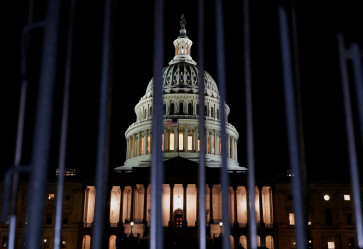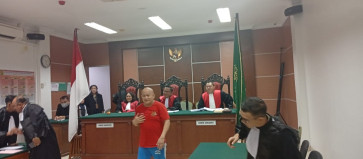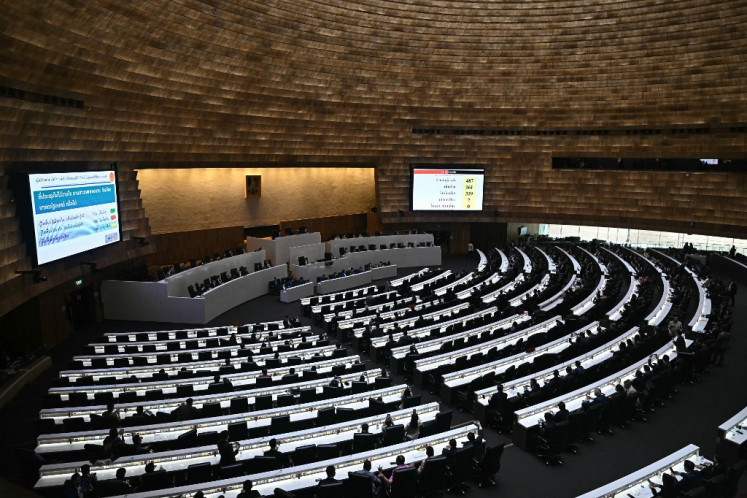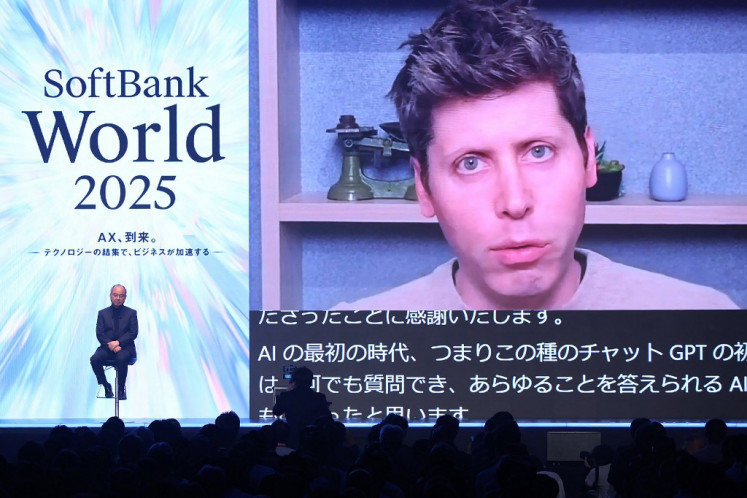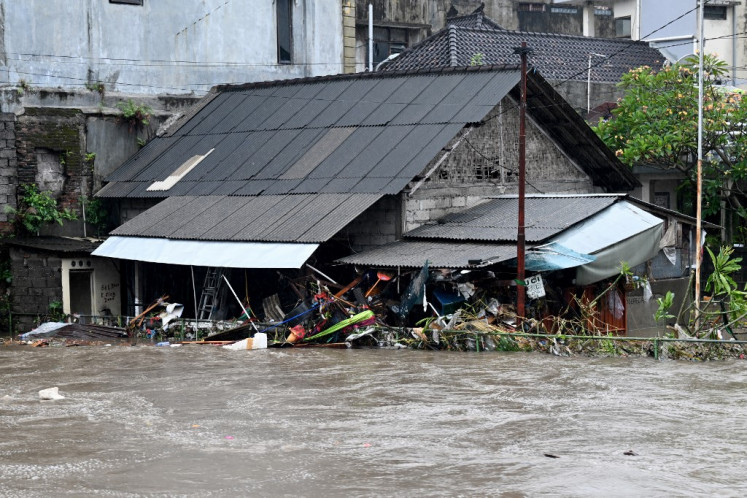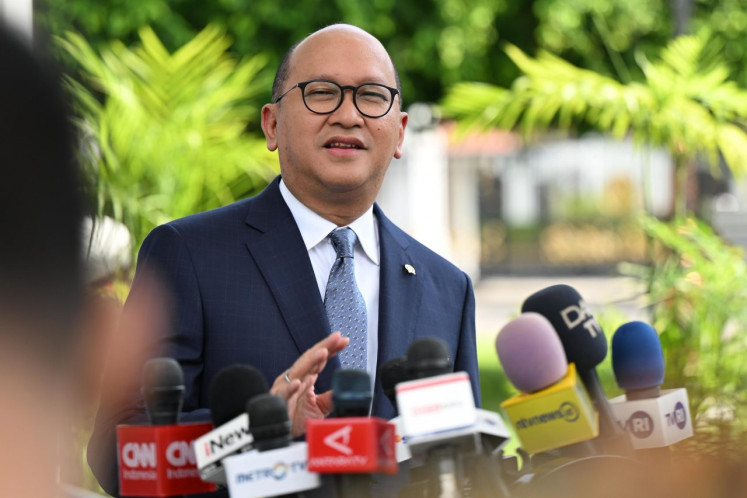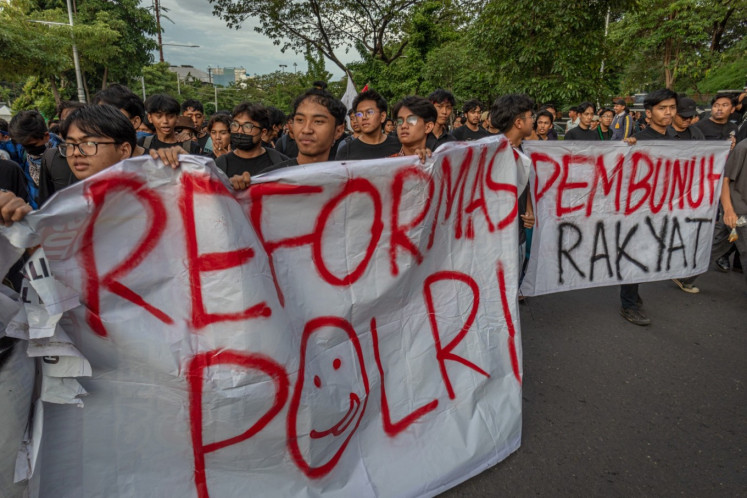Popular Reads
Top Results
Can't find what you're looking for?
View all search resultsPopular Reads
Top Results
Can't find what you're looking for?
View all search resultsKeep Danantara in check
Concentrating vast public wealth in one body without strong oversight is a recipe for corruption, conflict of interest and declining transparency.
Change text size
Gift Premium Articles
to Anyone
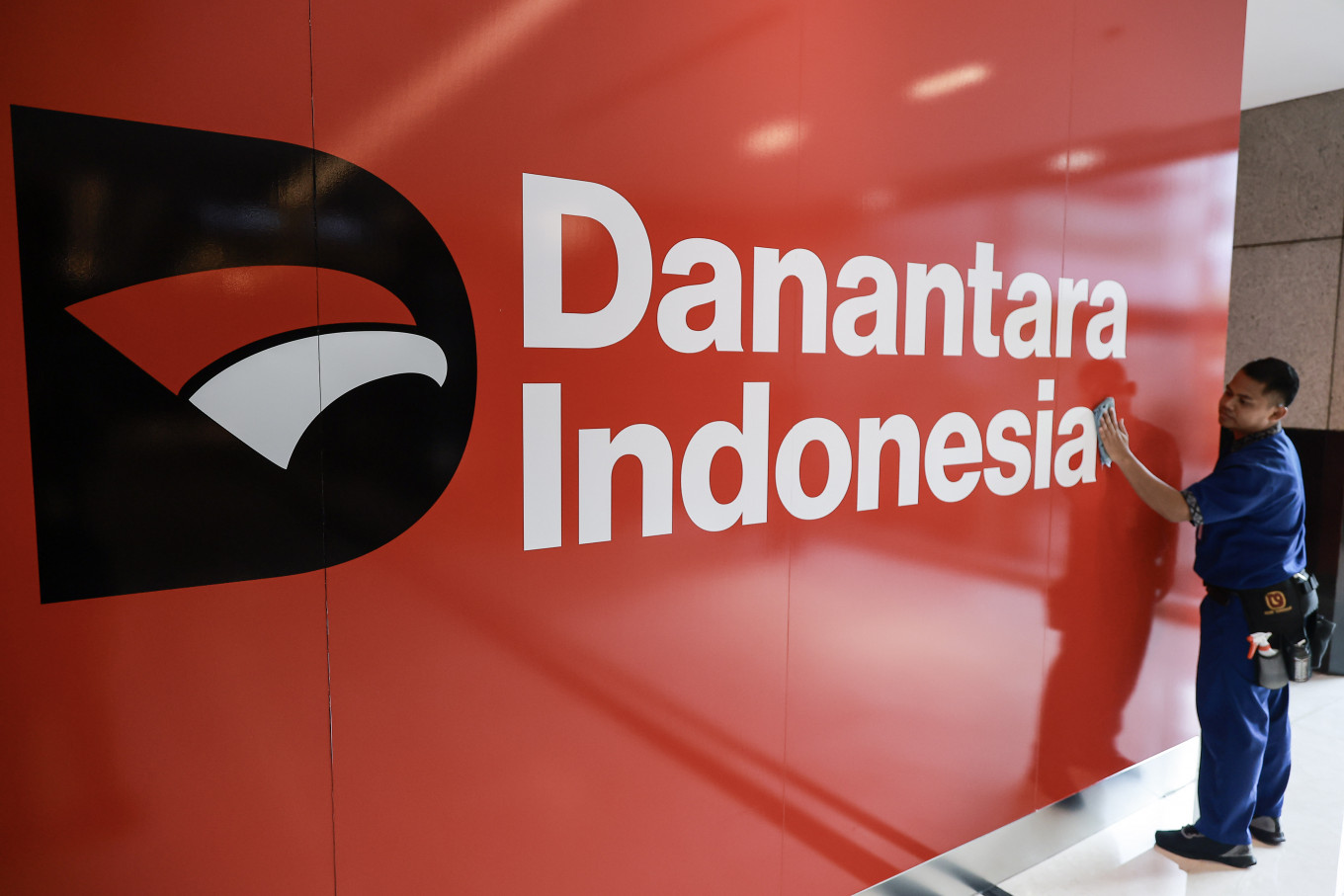 A worker cleans a room on Sept. 8 at Wisma Danantara Indonesia in Jakarta. In its first six months of operation, Danantara recorded several important achievements, including securing US$10 billion in funding, equivalent to Rp163.18 trillion, from a consortium of 12 foreign banks. (Antara/Dhemas Reviyanto)
A worker cleans a room on Sept. 8 at Wisma Danantara Indonesia in Jakarta. In its first six months of operation, Danantara recorded several important achievements, including securing US$10 billion in funding, equivalent to Rp163.18 trillion, from a consortium of 12 foreign banks. (Antara/Dhemas Reviyanto)
W
hen President Prabowo Subianto and the House of Representatives rushed the revision of the existing State-Owned Enterprises (SOE) Law to provide a legal basis for the establishment of the state asset fund Danantara in February, it raised many eyebrows.
Under the revised law, Danantara wields sweeping powers: Managing all SOE dividends, approving capital injections, orchestrating mergers or spin-offs and forming new holding companies. The agency can even bail out struggling SOEs, bypassing the lengthy approval process previously required from the SOE Ministry, the Finance Ministry and the House of Representatives.
Yet despite Danantara’s growing clout, the government and the House are once again pushing for another revision to the SOE Law, allowing only a week from deliberation to the bill’s expected passage on Tuesday.
The SOE Ministry, the very institution meant to serve as a counterweight, at least on paper, is being further reduced to a mere regulatory agency under the latest amendment.
In what appears to be a calculated move, President Prabowo reassigned then-SOE Minister Erick Thohir to the Youth and Sports Ministry, leaving Danantara Chief Operating Officer Dony Oskaria serving as interim minister, effectively blurring the lines between the supervisor and the entity being supervised.
To be fair, consolidating the operations of SOEs and centralizing their dividend management under a single holding entity is not inherently wrong. In fact, many countries have adopted similar models to improve efficiency and maximize returns from state assets, often with impressive results.
But concentrating such vast public wealth in one body without strong oversight is a recipe for corruption, conflicts of interest and declining transparency.
Critics argue that the administration tend to prioritize returns and funding for government projects through Danantara over checks and balances over the agency.
Their concern is heightened by the presence of government officials in Danantara’s leadership lineup and by the planned issuance of Patriot bonds at below-market yields, to be bought by local businesspeople, with some or all of the proceeds expected to fund government projects.
Debating whether the SOE Ministry should still exist or not may now be a technicality, or even irrelevant. The real priority is making sure Danantara, which controls one of the nation’s largest pools of public assets, remains transparent, accountable and truly serves the people.
On many occasions, President Prabowo has stated that he expects Danantara to emulate Singapore’s Temasek group. If the government is serious about that, it must not only replicate the agility and asset consolidation of Singapore’s agency but also adopt its governance safeguards.
When Temasek marked its 50th anniversary last year, Singapore Prime Minister Lawrence Wong reminded that the city-state government has always been careful not to interfere in Temasek’s investment decisions.
He quoted founding finance minister Goh Keng Swee, who warned against the “tragic illusion” that politicians and civil servants can run businesses better than markets, a mistake that causes state firms to lose sight of commercial and market discipline, leaving them bloated, inefficient and wasteful.
If Danantara is to succeed, governance must be the driver, not just speed or return on investment. Indonesia needs a strong, independent regulatory body that can serve as a real check on Danantara’s power, whether that takes the form of a ministry, agency or another oversight mechanism.
President Prabowo can start by appointing independent individuals to lead Danantara or by requiring current executives to relinquish their other public roles. If necessary, he can revise the SOE Law again, which arguably could now be called the Danantara Law, to strengthen checks and balances.
He has already revised the SOE Law twice this year, which means he can do it again to get this right.
For the sake of transparency, accountability and the constitutional mandate that state wealth should serve the greatest prosperity of the people, governance must be firmly put in the driver’s seat, not relegated to the back trunk.


